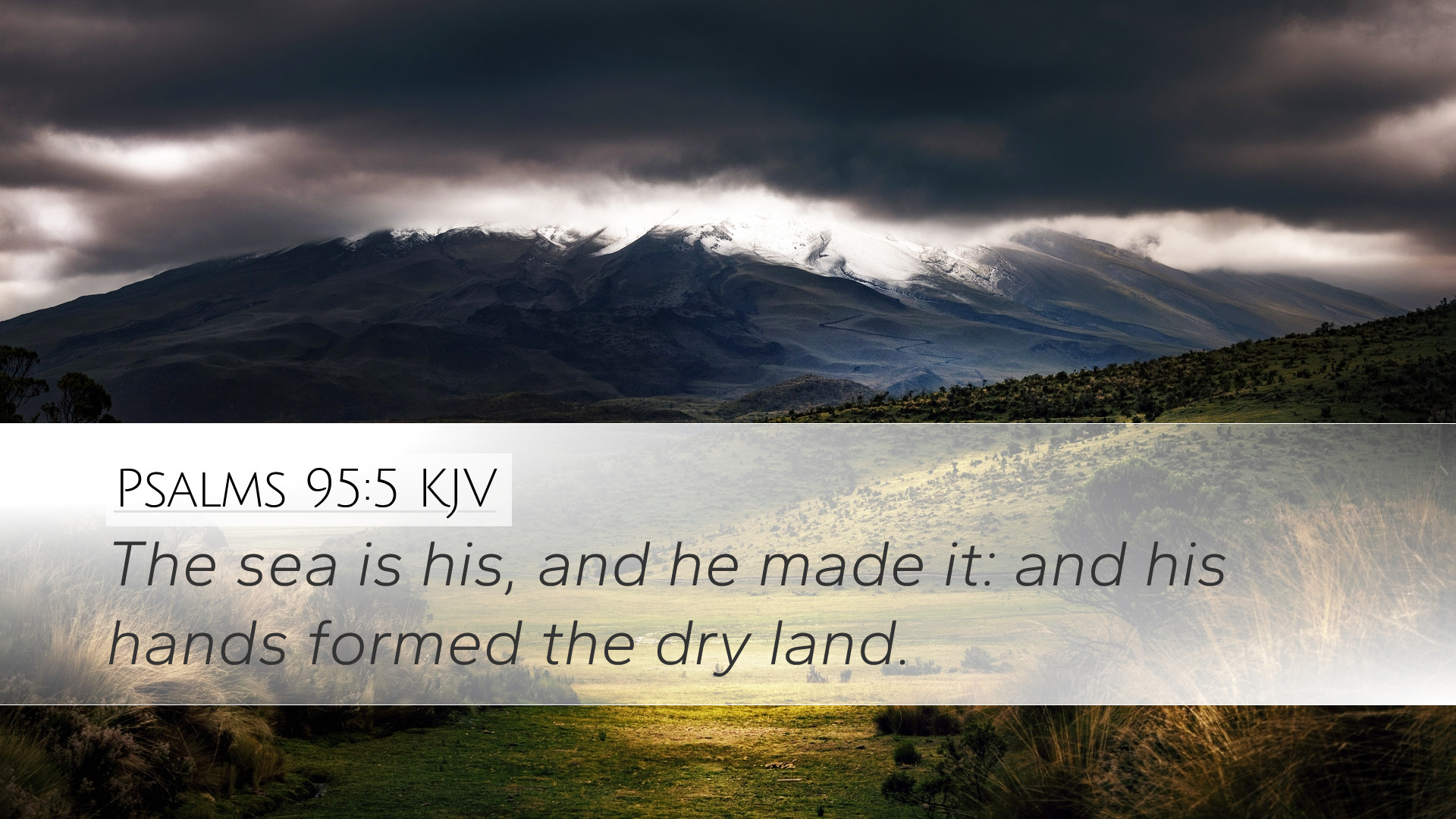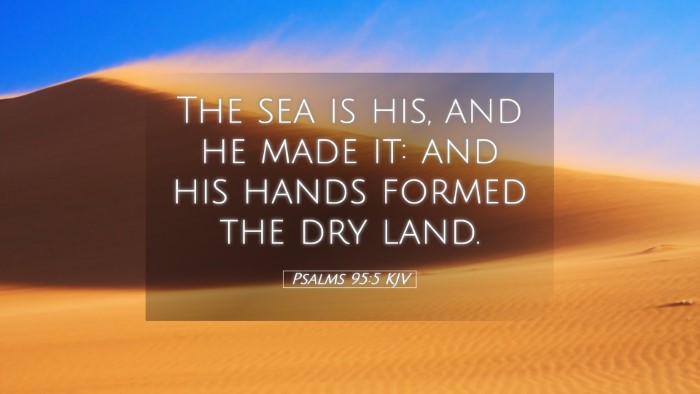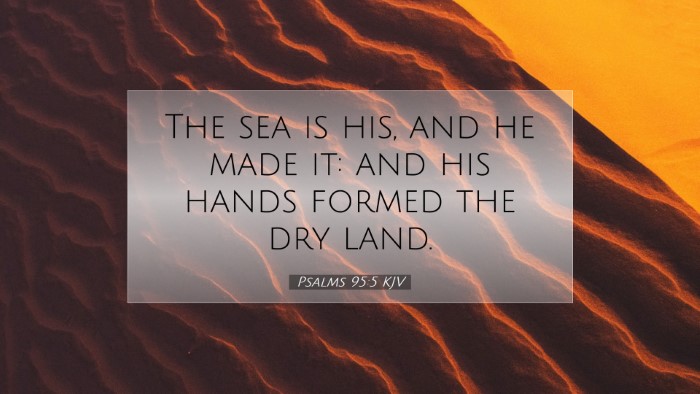Psalms 95:5 - Commentary Summary
Verse: "The sea is his, for he made it: and his hands formed the dry land."
Psalms 95 calls the worshippers to express their adoration and reverence for the Creator. This particular verse highlights God's sovereignty over creation, specifically the seas and the dry land.
Overview of Psalm 95
This psalm serves as a liturgical call to worship, inviting the congregation to come before the Lord with joy and thanksgiving. The themes of God's greatness and His caring providence are prominently exhibited throughout the passage.
Insights from Public Domain Commentaries
Matthew Henry's Commentary
Matthew Henry emphasizes the significance of God's creation in this verse. He notes that both the sea and the land are products of divine workmanship, which serves to inspire awe and reverence in the hearts of believers. He writes:
“The sea is his, for he made it; it is a creature of his creating power. Thus to God, the whole of nature is a vast theatre of his glory.”
Henry expounds that by recognizing God's ownership of the sea, worshippers are reminded of His ultimate authority and sustaining power over all aspects of creation. The verse acts as a reminder of God's providence and His ceaseless involvement in the world.
Albert Barnes' Notes
Albert Barnes further elaborates on the implications of God as the creator of the sea and the dry land. He asserts that understanding God as the creator fosters a deeper appreciation for His majesty and control over creation. Barnes writes:
“If God made the sea, then He has the power to command it. If He made the dry land, it demonstrates His ability to establish boundaries and provide for His creation.”
This perspective encourages believers to submit to God's authority and trust in His governance of the natural order. Barnes also draws connections to practical living, indicating that recognizing God’s sovereignty should influence the believer's daily life by instilling a sense of responsibility and stewardship towards creation.
Adam Clarke's Commentary
Adam Clarke offers a theological reflection that complements the views of Henry and Barnes. He comments on the intimate relationship between the Creator and His creation. In particular, Clarke states:
“The intimate connection between the sea and the dry land represents God's creativity in forming the environment where humanity resides. Each entity serves its purpose under God's design.”
Clarke suggests that the interplay of the sea and land in this verse reflects both the grandeur and the intricacy of God's creative work. By recognizing that everything exists at God's command, believers are challenged to reflect on their role within this divine plan.
Theological Implications
This verse highlights several key theological concepts that are essential for deeper understanding among pastors, students, and scholars:
- Divine Sovereignty: Acknowledging God as sovereign over creation affirms His authority over every aspect of life.
- Creation Theology: Understand that the created world is not merely a backdrop for human activity; it is an arena that reflects God's glory and handiwork.
- Human Responsibility: Recognizing God as Creator compels believers to care for the environment and steward it wisely.
Practical Applications
From this verse and its commentaries, several practical applications for believers can be drawn:
- Worship and Awe: Incorporate a sense of awe and reverence for God's creation in personal and communal worship settings.
- Creation Care: Engage in ecological stewardship, recognizing the responsibility of humans to care for God's creation.
- Trust in God’s Providence: Allow the recognition of God's sovereignty to instill confidence in His plan and provision for our lives.
Conclusion
Psalms 95:5 encapsulates a profound theological truth regarding God's sovereignty over creation. By integrating insights from public domain commentaries, it becomes clear that this verse not only calls for worship but also shapes a believer's understanding of their relationship with God and the world around them. As pastors, students, theologians, and scholars delve into this verse, they are reminded of the greatness of God as the Creator, the importance of stewardship, and the call to worship Him with reverence and joy.


